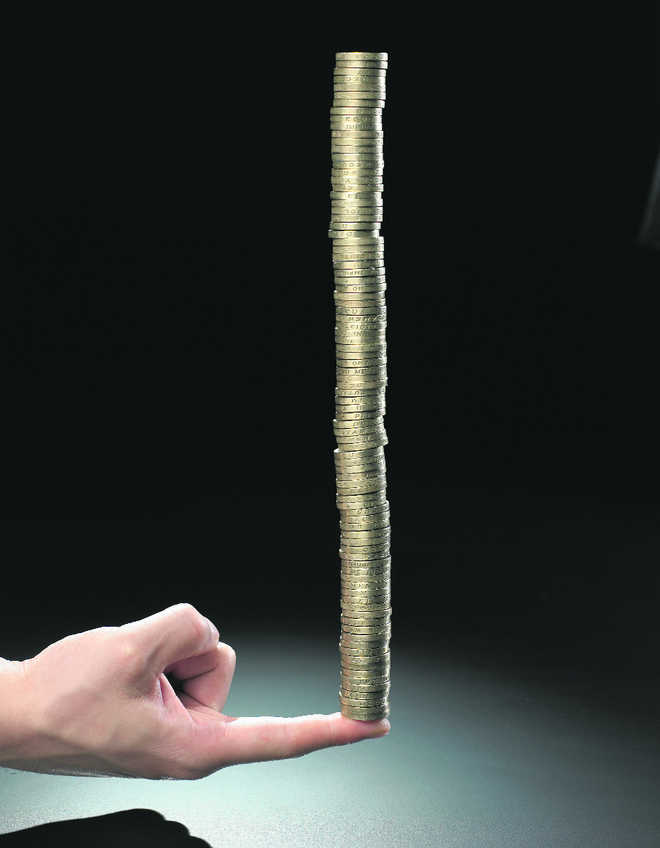
My father-in-law retired from Indian Railways in 1978 and settled at Darapur village which is in close proximity to Tanda town, a sub-tehsil of Hoshiarpur district. He bought a 10-marla agriculture land in his own name and another 10 marla land in the name of his eldest of the three sons and built 816 sq ft house at a cost of Rs 4.5 lakh (approximately). [No records are available]. He kept on improving the property but again records are not available. The land was purchased at a total cost of Rs 16,500 in February 1979 [registered deed is available] . He expired in April 2017, leaving a will for this property in the name of his three sons with equal share for each. This property has now been sold by his sons in May 2017 at a total price of Rs 46 lakh. Three brothers have decided to share proceeds of Rs 42 lakh equally among themselves and all four real sisters at Rs 6 lakh each. Rs 1 lakh will be donated to gurdwara as per will of the deceased and Rs 3 lakh have been spent on his last rites. In this connection following clarifications are requested:
1. Is any tax payable for sale of property and if so, how much?
2. How much tax is payable by each of the three sons and each of four daughters even though the will is in favour of three sons only.
3. If tax is payable then can it be avoided by any means or measures?
4. Even though the property has been sold by three sons, the purchaser has been asked to transfer Rs 6 lakh directly to accounts of each sister. Is this in order or some measures need to be taken to regularise the payments. — Rajinder Saini
Replies to your queries which are given under are based on the presumption that the agricultural land bought by your father was situated within 8 km of Tanda town and therefore is to be considered as a ‘capital asset’. Further, as the capital asset has been transferred in May 2017, the reply given hereunder is based on the amended provisions of the Act.
a) Section 48 of the Act provides that for the purpose of computing capital gain on the transfer of a capital asset, cost of the capital asset and cost of any improvement thereon, shall be deducted from the consideration received or receivable on the transfer of such capital asset. It has also been provided in Section 55 of the Act that in case the capital asset has been purchased before 1.4.2001, the assessee has an option to adopt fair market value of the asset as on 1.4.2001 and such fair market value of the capital asset shall be indexed by giving a benefit of cost inflation index so as to ascertain the cost deductible for the purposes of computing the amount of capital gain. The amount of fair market value as on 1.4.2001 should be much more as compared to the cost of the land in 1979. It will therefore be desirable to obtain a valuation certificate from an approved valuer for ascertaining such fair market value. The amount of capital gain has not been computed as the fair market value as on 1.4.2001 has not been indicated in the query. It may be added that each of the sons would be liable to pay income-tax on their share (i.e. 1/3rd) of the amount of long-term capital gain arising on the transfer of the property.
b) No tax will be payable by daughters of the deceased as the amount received by them would be treated as a gift by the brothers.
c) Tax on the amount of capital gain could have been saved provided each of the sons had utilised their share of the long-term capital gain towards buying tax-saving bonds issued by National Highways Authority of India or Rural Electrification Corporation Limited within six months of the date of transfer. Alternatively, each one of them could have saved the amount of tax, if the amount of long-term capital gain had been utilised for purchase or construction of a residential house individually or jointly by them. The purchase of such residential house should have been made within one year before or two years after the transfer of the property. The construction of residential house should have been effected within three years after the date of the transfer of the property.
d) The payment of Rs 6 lakh directly to the daughters of the deceased would not make any difference with regard to taxability of the amount of capital gain.



























